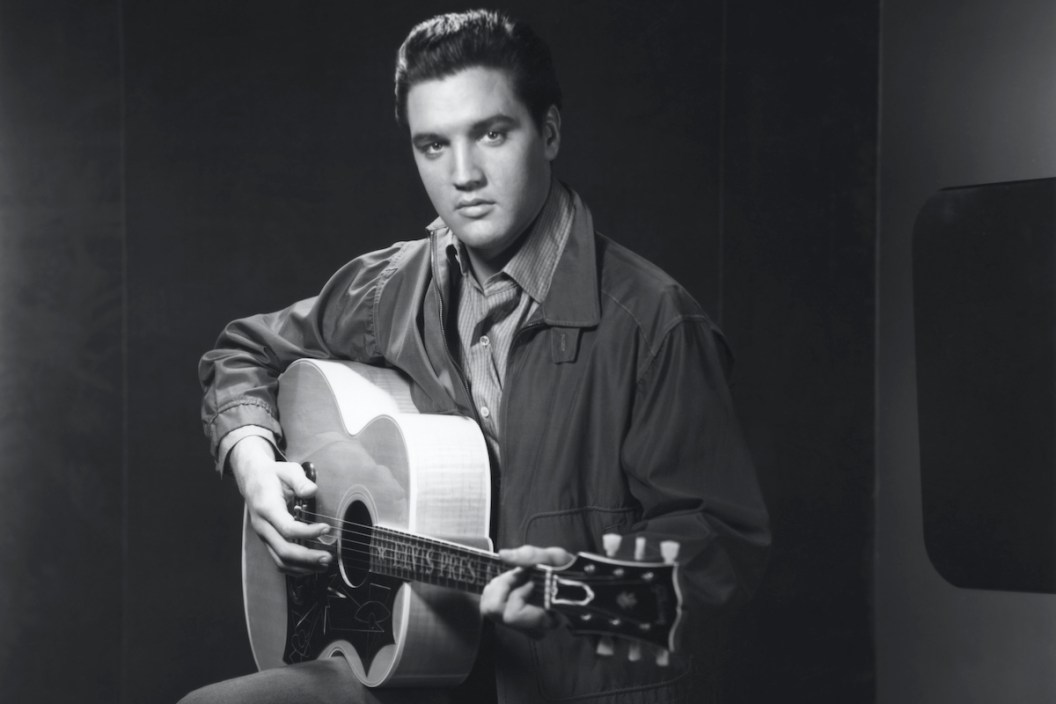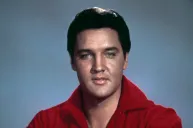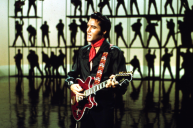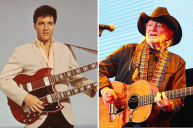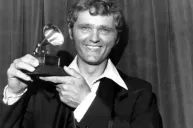Although country music fans crowned different kings of their preferred genre over time, they've remained content bowing to one rock 'n' roller, Elvis Presley, since his Sun Records heyday.
Videos by Wide Open Country
Throughout his well-documented career, Presley's undeniable Southern charm and meager beginnings marked one of the most iconic public personas in music history. Initially, he exemplified the white Southern performers blending country music with African American sacred and secular sounds, furthering the early development of rock 'n' roll. Once Presley's fame and million-selling hits began transcending rock itself, nods to his Southern roots and country and gospel heroes remained intact.
As Presley progressed from a young singer and soldier to the most famous person on Earth, he was still the Deep South dreamer from Tupelo. Likewise, Presley never shunned or alienated the country music audience that always appreciated his humble roots.
The following talking points sum up why Presley's life, music and myth still resonate with fans of country music, and why he will be remembered as one of the most prominent figures in country music history.
A Boy From Tupelo
Many great stories begin with a small-town resident's talent leading to brighter lights and greater success. Struggling Midwestern country singers catching the next bus to Nashville come to mind, but it's not a genre-specific tale. Pro athletes, rappers and other entertainers often have charming backstories about humble beginnings. Even in the world of fiction, Luke Skywalker won over audiences by wanting a life beyond the farm.
Presley lived out this trope. He was born on Jan. 8, 1935 in Tupelo, Miss. Nothing against Tupelo, but growing up in a two-bedroom shotgun house qualifies as a meager upbringing. This unlikely setting produced the ideal entertainer to make the burgeoning teenage culture mainstream, forever endearing Presley to rural audiences.
A Church-Going Mama's Boy
In all likelihood, Presley first heard music performed publicly at the East Tupelo First Assembly of God. For numerous country singers, including fellow Mississippi native Marty Stuart, the local church provided a means to learn to sing harmony parts and solos for free around seasoned performers. In addition, the church hymnal continues to inspire singers' cover selections and original material, maintaining country music's status as gospel's less reserved, more worldly cousin.
Furthermore, Presley adored his motherGladys. His well-chronicled mama's boy ways exalt a woman who died in 1958, shortly before Presley shipped off to Germany with the Army. Thinking about Gladys Presley surely reminds some country fans of mothers, grandmothers and other tough, resilient women that were the backbone back then of rural Mississippi and similar locales. Had his mother not passed away so early in his career, Presley might have handled smothering fame without certain vices. Fear of disappointing Mama might've been too heavy a cross to bear, extending the King's career into the 1980's.
A Talented Interpreter of Country Songs
Presley's rural backstory isn't enough to explain his sustained appeal for country music audiences. After all, not all country-loving Elvis fans grew up in the country. Others aren't from the South or even the United States (as is the case with the country music audience at any point over the last 100 years). However, the songs themselves captured the imagination of fans in the 1950's and maintain the love of such a broad audience.
Although Presley went from a country and R&B-tinged rockabilly artist to a gloriously exaggerated Las Vegas lounge singer over the years, he never shunned his musical roots. A souped-up cover of Bill Monroe's early bluegrass standard "Blue Moon of Kentucky" backed his debut 1954 single for Sun Records, "That's All Right." It warned audiences out the gate that this country boy stayed West of Nashville to craft something new, bold and authentic. A fantastic song interpreter, Presley went on to add his own twist to the works of Hank Williams ("I'm So Lonesome I Could Cry"), John Hartford ("Gentle on My Mind"), Waylon Jennings and Billy Joe Shaver ("You Asked Me To"), Eddie Rabbitt ("Kentucky Rain") and Willie Nelson ("Funny How Time Slips Away").
Presley's mix of country covers and genre-defining rock hits made him a crossover star before that term was attached to Glen Campbell, Shania Twain or any of today's purveyors of dance beats and pop hooks. This trend began during his early days in Memphis, alongside fellow country boys at heart Jerry Lee Lewis and Johnny Cash, and survived one of the 20th century's most storied rises to global fame.
The final crossover hit of Presley's lifetime, "Moody Blue," topped the Billboard Hot Country Singles chart six months before his passing. Fittingly, its b-side was "She Thinks I Still Care," an often-covered country song first popularized by George Jones.
This story was previously published in 2019.
